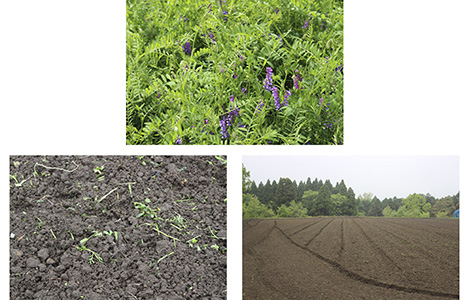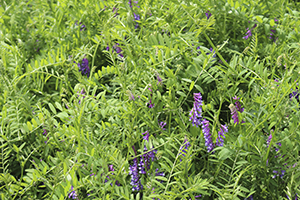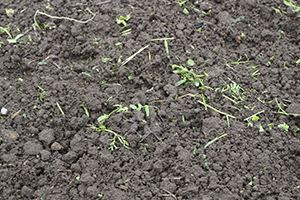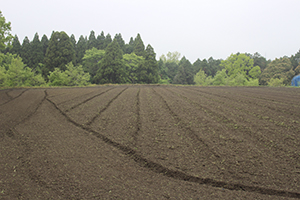- Release number
- Posted date
- 2025/5/15
- Category
-
- CSR
- Corporate name
- Tokyo University of Agriculture and Technology
Suntory Holdings Limited
Tokyo University of Agriculture and Technology and Suntory Holdings Begin Piloting Sweet Potato Cultivation Utilizing Regenerative Agriculture Practices
― Over 30% Reduction in Green House Gas (GHG) Emissions Anticipated While Combating Crop Diseases ―
Download PDFTokyo University of Agriculture and Technology (TUAT) and Suntory Holdings will collaborate with producers in Kagoshima Prefecture, Japan beginning in May to increase and stabilize sweet potato yields using regenerative agriculture*1 practices.
Background:
The spread of foot rot*2 has caused a significant decline in sweet potato yields in Japan, becoming a nationwide concern. Since the disease began spreading in Japan in 2018, sweet potato yields have decreased by approximately 10%*3.
Research Overview:
Based on the hypothesis that restoring soil health can help prevent disease, the pilot will integrate green manure*4 and biochar (carbonized materials from biomass resources) into agricultural soils where sweet potatoes are grown and test the effectiveness on disease resistance.
Roles and Responsibilities:
Suntory will supply key materials, including green manure and biochar, while TUAT will lead the evaluation of soil conditions, microbial health, and disease control efficacy. This pilot will be conducted in Kagoshima Prefecture.
Long Term Vision:
The pilot will run for three years, concluding at the end of 2027. Its goals are to reduce disease, recover and stabilize sweet potato yields to pre-foot rot levels, and establish regenerative agriculture practices tailored to Japan’s unique climate and soil characteristics.
In this pilot, the use of green manure and biochar is expected to reduce chemical fertilizer use by approximately 50% compared to conventional farming methods. This shift could lead to a GHG emissions reduction of over 30%.
Comment by Tsutomu Arie, Trustee for Global Strategies, Vice-President, Chief Operating/
Academic Officer, Tokyo University of Agriculture and Technology:
Tokyo University of Agriculture and Technology (TUAT) aims to solve various problems facing the Earth through the wisdom based on cutting-edge research at TUAT, leading to the sustainable prosperity of humanity. As an example, we are conducting joint research with Suntory Holdings with the aim of preventing diseases that are an obstacle to food plant production with a low environmental impact by building a soil microbial flora that is more favorable for plant growth. This kind of regenerative agriculture will not only solve direct issues such as sustainable agricultural production, improving plant yields, and ensuring farmers' livelihoods, but will also be a groundbreaking step towards solving broader issues facing Japan, such as food security and environmental sustainability.
Comment by Brian Golden, Senior General Manager of Global Supply Solutions, Suntory Holdings:
Reflecting our commitment to agricultural sustainability, Suntory is launching a new initiative in Kagoshima Prefecture focused on enhancing soil health to combat foot rot disease in sweet potatoes. By partnering with experts in regenerative agriculture, we aim to improve crop yields and support farmer livelihoods. This program represents an exciting step towards a sustainable future for Japanese farming.
 |
|
(Upper Section) Green Manure Used in the Pilot Program |
Terminology:
*1: Regenerative agriculture is a sustainable, outcomes-based farming approach that restores soil health, promotes biodiversity, and supports farmers' livelihoods. It reduces dependence on synthetic fertilizers and pesticides, lowering GHG emissions.
*2: Foot rot is a fungal disease that affects sweet potatoes. It causes stem discoloration at the plant’s base and leads to tuber decay.
*3: According to Ministry of Agriculture, Forestry and Fisheries of Japan (2024).
*4: Green manure refers to cover crops that are not harvested but tilled into the soil to enhance fertility. They supply organic matter, prevent erosion, and improve soil structure.



